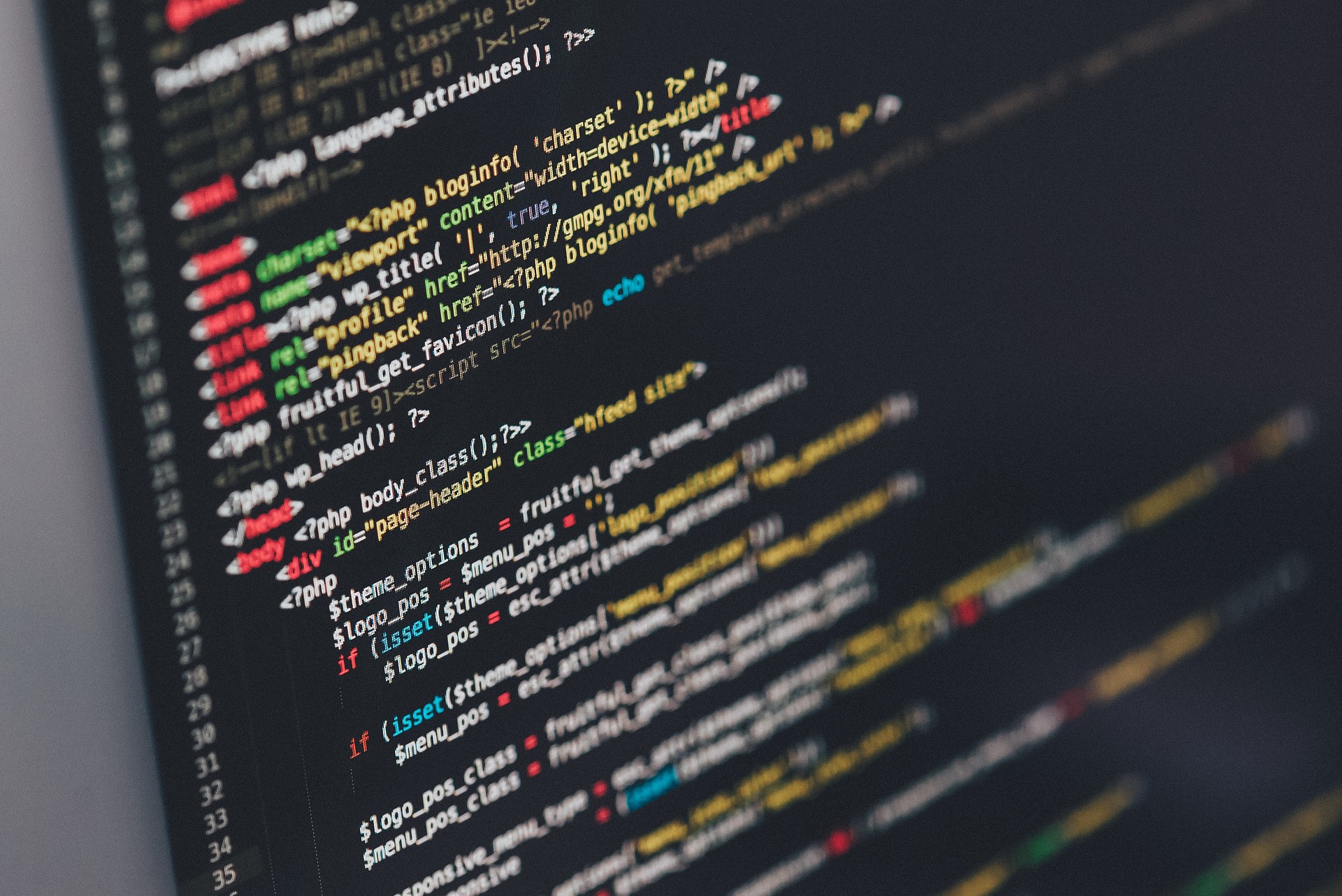Crypto Smecta, read through the status quo of Korean blockchain in one article
Editor's Note: This article comes fromChain News ChainNewsEditor's Note: This article comes from
Chain News ChainNews
(ID: chainnewscom), Author: Chain News x One Alpha, published with authorization.
China's leeks have been harvested, and South Korea is regarded as the most active virtual currency investment market in Asia. How is South Korea, once Asia's hottest market, doing now after a sharp drop in the market?

One Alpha, a virtual currency consulting company focused on the Korean market, recently released an 84-page report that deciphered the panorama of the development of the blockchain industry in South Korea. This may be the most detailed research report on the Korean blockchain ecology currently available on the market.
ChainNews has obtained the authorization of One Alpha and selected the core content of the report. It is hoped that through this article, Chinese blockchain investors and investment institutions can learn in detail about the current development status and latest developments of the Korean blockchain ecosystem. trend.
South Korea’s Cryptocurrency Dream: Kimchi Premium and ICO Craze

For the past three years, blockchain technology and cryptocurrencies have taken Korea by storm. For millennials in South Korea, fast internet speed, addiction to digital culture, and proficiency in new technologies, these factors gathered together and produced a chemical reaction, resulting in a nuclear explosion in the Korean blockchain industry.
During the great bull market of 2017, Korean ICO projects were able to raise a record amount of funds in just a few hours. Virtual currency assets have become so popular that buyers on South Korean exchanges were once willing to pay a 32% premium for bitcoin and other virtual currencies, a phenomenon known as the "kimchi premium" Kimchi Premium, the "Korean kimchi premium" of the blockchain industry. And thus "Dream" was born.
In theory, it is not difficult to understand how brick movers profited from the "kimchi premium" in the early stage: they bought coins from overseas exchanges and sold them on Korean exchanges at a much higher price, the so-called "kimchi premium". Arbitrage trade" to profit from the price difference.
Korea Exchange: Opportunities and scandals go hand in hand
During the great bull market of 2017, the trading volume of Bitcoin and other virtual currencies soared in South Korea, accounting for a huge proportion of the world. At some point, most of the world's trading volume comes from South Korean exchanges. In 2018, many South Korean exchanges experienced security breaches and hacking incidents, such as Bithumb, Coinrail, Youbit, etc. Among them, Youbit even lost 17% of its assets in the second attack and was forced to file for bankruptcy. These accidents even caused innocent investors to lose all their funds, but the trading volume in South Korea is still high.

Of course, the ecology of Korean exchanges is also changing. The two main players in the market have attracted criticism for their fake transactions and price manipulation. Following multiple audits and inspections, Song Chi-Hyung, the founder of UPbit, the second largest cryptocurrency exchange in South Korea, and two senior staff have been indicted for inflating trading volumes, manipulating transactions through bots and other means during the bull market in late 2017. price.
image description
South Korea's second largest cryptocurrency exchange UPbit
 UPbit was launched in October 2017 by Dunamu, a subsidiary of South Korean mobile social giant Kakao. In May 2018, UPbit was raided by South Korean authorities for allegedly manipulating its balance sheet and inflating its trading volume. The exchange claims it is insolvent. Four days later, UPbit hired South Korea’s largest accounting firm, Yoojin, to conduct an internal audit to clean up the exchange of all malfeasance. Eventually, an internal audit was completed last summer and Yoojin said the exchange was free of irregularities, but UPbit’s daily trading volumes took a big hit, falling 56% between May and June.
UPbit was launched in October 2017 by Dunamu, a subsidiary of South Korean mobile social giant Kakao. In May 2018, UPbit was raided by South Korean authorities for allegedly manipulating its balance sheet and inflating its trading volume. The exchange claims it is insolvent. Four days later, UPbit hired South Korea’s largest accounting firm, Yoojin, to conduct an internal audit to clean up the exchange of all malfeasance. Eventually, an internal audit was completed last summer and Yoojin said the exchange was free of irregularities, but UPbit’s daily trading volumes took a big hit, falling 56% between May and June.
Despite being in a bear market in 2018, according to data from DART, a Korean corporate archive, UPbit made a profit of more than US$100 million in the third quarter of 2018 alone.
Quarterly trading volume and proportion of Korean crypto exchanges in 2017 and 2018; unit: US$ billion
According to the exchange rating agency CER, since the summer of 2018, the sharp increase in trading volume on Bithumb was mostly caused by fraud, with brushing accounting for 95% of the daily trading volume, especially the average trading volume per user soared from 0.21 BTC to 5.88 BTC, an astonishing 28 times!

Both exchanges have denied all allegations. It remains to be seen how South Korean authorities will handle such situations in 2019.
image description
South Korea's largest cryptocurrency exchange Bithumb
Bithumb is the largest cryptocurrency exchange in South Korea, founded in 2013. It is one of the world's largest exchanges by trading volume, supporting more than 60 Korean won and cryptocurrency trading pairs.
The platform is operated by Korea.com Co. Ltd. Deposits are free of charge, and withdrawals charge different fees depending on the currency. Despite a bear market in 2018, Bithumb generated $270 million in revenue in the first half of 2018, according to its parent company Vidente. Korean news agency Yonhap previously reported that the company made a profit of $380 million in 2017.
In October 2018, the BK Global Consortium consortium led by Kim Byung-gun, a plastic surgeon and a well-known blockchain investor, acquired more than 50% of Bithumb's largest shareholder, BTC Holding, with a transaction value of US$350 million. Completed in February 2019.
Also, South Korea’s cryptocurrency exchanges have become legal financial institutions in the country despite increased regulation by the South Korean government.
It is worth mentioning that Korean banks have finally been approved to conduct business with virtual currency exchanges, which marks a major change in the perception of the Korean public towards virtual currency assets in the future.
secondary title
Regulation: Attitudes towards blockchain and cryptocurrencies are clearly divided
The South Korean government’s stance on blockchain is very clear: blockchain technology is great and should be cultivated and developed, while virtual currencies pose a major threat to innocent investors, and unregulated markets are full of misbehaving. This has led to authorities taking very different approaches to the two industries: on the one hand, regulators have followed in China’s footsteps by banning ICOs and taking tougher measures to protect investors; on the other hand, the South Korean government has continued to support and even subsidize Blockchain-based projects to promote the application of blockchain technology in cities and services.
South Korea’s cryptocurrency community is generally dissatisfied with the government’s regulatory actions. More and more public opinion has criticized the South Korean government for failing to establish a reasonable regulatory framework. But on the other hand, Korean regulators are also working hard to create a benign regulatory framework.
In contrast, the South Korean government has not been rash in virtual currency regulation, but the process of finally forming a regulatory framework may take longer than expected. South Korea remains a leader in the virtual currency and blockchain world, and the constant tug-of-war between over-regulation and lack of regulation will only slow development, not stop it.
secondary title
In May 2017, Korean financial technology company Blockchain OS raised more than 6,900 BTC, worth more than 13.8 million US dollars at the time, and since then set off a wave of ICO mania in South Korea.

The huge amount of funds raised by BOScoin ICO and the eye-catching "new economic model driven by revolutionary technology" have aroused the attention and interest of Korean society and triggered the take-off of ICO. But by September 2017, ICOs were banned across the board in South Korea.
image description
Changes in the number of ICO projects in South Korea from 2017 to the first quarter of 2019
More and more South Korean projects have joined the battle for ICO financing, and investors have also invested a lot of money, expecting to get rich returns. In the second and third quarters of 2017, the financing amount of Korean blockchain projects was about 21 million US dollars. Although the Korean government has repeatedly tightened its regulatory policies for ICOs, under the bull market in 2017, in the fourth quarter alone, Korean projects raised an astronomical figure of 316.8 million US dollars through ICOs. In 2018, a total of 100 new blockchain projects were launched in South Korea, raising $898.5 million.

In the second half of 2018, the South Korean encryption market shrank on a large scale, with fewer ICO projects and a sharp drop in the amount raised.
Number of ICO projects in South Korea by sector involved

Overall, fintech blockchain projects still dominate, with 44, accounting for 33.8%; infrastructure and basic protocols have 14, accounting for 10.7%; social media has 12, accounting for 9.2%; media There are 8 entertainment and game categories, accounting for 6.15%.
image description
South Korea’s blockchain projects are registered around the world, the number outside the brackets is the number of Korean blockchain projects registered in the region, and the number in the brackets is the number of ICOs
ICON
In 2019, there are still several ICOs planned for blockchain projects in South Korea, but like the rest of the world, interest in ICOs continues to decline.
Among the blockchain projects in South Korea, these top projects are worth knowing for Lianwen readers:
Hdac
ICON is one of the largest and most famous ICO projects in Korea. It was established by Dayli Financial Group, the holder of Coinone, the third largest exchange in Korea.
ICON itself is a platform for smart contracts and decentralized applications, hoping to establish connections between different entities. Entities that the project hopes to connect include other blockchain platforms, financial institutions, enterprise private chains, and more. The project was twice funded by the South Korean government.
Headquartered in Switzerland, Hdac's full name is Hyundai Digital Asset Company, a modern digital asset company, but it actually belongs to the large chaebol Hyundai Group in South Korea. Hdac provides payment services through hardware wallets and "secure tunnels" that claim to be advanced in security.
Fantom
At the end of 2017, Hdac completed the ICO of its token DAC, raising 16,790 BTC worth $258 million, which was the most funded public offering in 2017. However, in May 2018, the company’s mining pool was hacked, forcing a temporary halt to withdrawals. Because its mining pool is decentralized, Hdac says it is not responsible. In July 2018, Hdac's board of directors voted to delist Hdac from all exchanges.
According to the disclosure of the Hdac team to One Alpha, the team is currently working on related projects related to the public chain and alliance chain, but did not provide more detailed information.
In June 2018, Fantom used 40% of its token FTM for private placement and public placement, raising about $39.8 million and is considered one of the most promising projects in South Korea.
Fantom says it has partnered with a number of banks, telecoms, and insurance companies, and singles out the Korea Food Technology Association, which holds $179 billion. The list of investors in this project is impressive, including the exchange Bibox, American investment funds Arrington XRP Capital, Blackedge Capital, Eight-dimensional Capital, Block Tech Capital Corporation, Block VC, Signum Capital, HyperChain Capital, Transference Capital Management Limited, etc.
secondary title
The life of a young Korean is likely to be dominated by a few brands. Westerners may be shocked by the domestic influence of a handful of Korean brands, especially South Korea's large chaebols (chae means wealth or property, and bol means clan). These giants include electronics maker Samsung, automaker Hyundai, electronics maker LG and retailer Rakuten.

They have dominated the Korean economy since its economic reforms in the 20th century, making South Korea the fifth largest exporter in the world, and the world's eleventh largest GDP. In terms of market value, these giants control more than 50% of the shares of the Korean stock exchange, and in South Korea today, there are as many as 45 such giants.
image description
These giants are not scratching the surface. Each giant is involved in blockchain projects in various ways, including cryptocurrency exchanges, blockchain-based small and micro business solutions, and even emerging but promising and risky decentralized platforms or tokens.
With strong financial resources, large user base, diverse products, and rich practical use cases, these groups are destined to be the leading factors in the local and future global application of blockchain technology in Korea.
secondary title
Who are the leading blockchain investment institutions in South Korea?
The popularity of cryptocurrencies and the rapid rise in profits in 2017 attracted the attention of local venture capital funds and high-net-worth individuals in South Korea.
According to One Alpha’s understanding, in 2016, there was only one venture capital institution in South Korea that focused entirely on virtual currency-related investments, and that was BlockVC. In addition, three other Korean venture capital institutions invested in blockchain-related projects.
By 2017, according to One Alpha statistics, five newly established venture capital institutions have flooded into the blockchain investment field, and four of them focus on investing in blockchain and cryptocurrency-related projects. Among them, Signum Capital, # The three institutions, hash and Access Ventures, are already the most important players in the blockchain ecosystem in South Korea today. Their main investments include ICON, EOS, Zilliqa, QTUM, VeChain and other popular projects.

In 2018, seven more venture capital firms opened in South Korea, all focusing on blockchain and cryptocurrency investments. It is worth noting that the portfolios of these new institutions have great similarities, with projects like Fantom, TEMCO, Ontology appearing frequently. Blockwater is now the newest “number one player” in the Korean blockchain investment space.
image description
KIP

Comparison of the number of encrypted funds and traditional funds in the Korean cryptocurrency field
Lianwen readers who pay attention to the Korean blockchain investment market must be familiar with the leading institutions in the Korean market:
#hashed

The full name of KIP is Korea Investment Partners. It was established in 1986. It was originally a venture capital and private equity firm, managing assets of 1.5 billion US dollars, and it is the largest institution in Korea VC in terms of assets under management.
The agency's portfolio includes more than 400 companies, including South Korean Internet giant NHN, search giant Naver, and mobile social giant Kakao. In October 2018, KIP announced its investment in TEMCO, its first blockchain project.
#hashed, formerly known as Blockchain Partners Korea, is Korea's largest cryptocurrency-focused venture capital fund.
Access Ventures

The agency's CEO Simon Seojoon Kim and CIO Hwisang Kim were early evangelists and leaders in the Korean cryptocurrency community.
#hashed started with $600,000, and at its peak, its assets exceeded $250 million. It has invested in more than 40 projects, including EOS, Kyber Network, OmiseGO, Ontology, ICON, QuarkChain, Dfinity, Oasis Labs, and Terra.
Signum Capital
 Access Ventures focuses on investing in start-up technology companies in South Korea, Vietnam and Indonesia.
Access Ventures focuses on investing in start-up technology companies in South Korea, Vietnam and Indonesia.
Blockwater

After the rapid rise of cryptocurrencies in South Korea in 2017, the company began to try to make small investments in blockchain-related projects, including the shared computing project Comcom, the open source platform Kambria that accelerates the development and application of AI and robots, and the AR augmented reality game platform Mossland. Of particular note is Mossland, a project where users can own and trade virtual properties, whose ICO sold out in 38 minutes, raising around $9 million.
Registered in Singapore, Signum Capital is an important institution in the field of blockchain investment in South Korea. The agency focuses on providing funding and consulting for blockchain projects, and often invests in projects in pre-sale rounds, including Zilliqa, Sentinel Protocol, TenX, and QuarkChain. In South Korea, the institutions invested in projects include FANTOM, Airbloc, and Cosmochain.
Blockwater was founded in January 2018 by KRTG founder and former COO Isaac Lee and Korean early cryptocurrency investor and Coinhills founder Francisco Jo. Blockwater is a crypto hedge fund focused on investing in applications that bring blockchain projects to the real world.
BlockVC

Blockwater Capital has invested in numerous blockchain projects around the world, with a particular focus on South Asia. In South Korea, they have invested in companies such as Fusion, Fantom, and Airbloc, as well as more than ten projects such as Logos, Bibox, EOS, and dock.io.
KryptoSeoul founder and CEO Erica Kang said Blockwater is currently raising $100 million to set up a fund backed by institutional investors.



